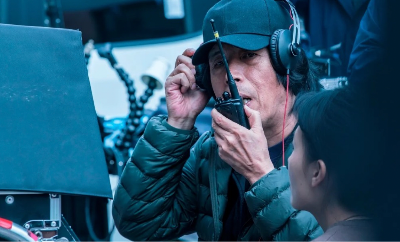Live Blog
“Promised Land,” based on a short story by Dave Eggers and adapted for the screen by the film’s stars John Krasinski and Matt Damon, is a political film with likeable characters in an intriguing situation. Yet in politics, a strong central idea is necessary to captivate audiences, and unfortunately, this politically-charged film lacks such a cohesive idea.
The film opens with Steve (Damon) and Sue (Frances McDormand), two salespeople for a big oil company, visiting a small company where their company hopes to begin fracking, which is the extraction of natural gas from underground rock layers. Viewers of “An Inconvenient Truth,” “Gasland” or any other recent environmentally-focused documentary is aware of the ruinous effects of fracking. But Steve and Sue don’t care — that is, until environmentalist Dustin (Krasinski) comes to town.
Director Gus Van Sant’s style is expectedly refined; his unusual direction places an emphasis on the visuals, which are beautifully captured. His formal techniques are bold — the film even includes a brief split-screen sequence to great effect during a phone conversation — and they enliven what otherwise could have been a run-of-the-mill environmental warning narrative.
But “Promised Land” misfires despite its impressive cinematography. It’s hard to believe that a political Van Sant film could fail, yet “Promised Land” does. Unfortunately, the film spins out of control for reasons unrelated to Van Sant’s touch.
Most of the problems lay in Damon and Krasinski’s predictably faulty screenplay, which, despite the plot’s shift into unexpected territory, is entirely composed of by-the-numbers characters. Steve and Sue veer too far into the cinematic trope of the mismatched duo. Rosemarie DeWitt is charming as usual as Steve’s love interest Alice, and even Hal Holbrook makes an appearance as a crotchety teacher strongly opposed to fracking. Yet not even a talented actress such as McDormand can pull off the script’s corny dialogue, which subjects the actors to roles far too similar to many of their previous characters.
“Promised Land’s” biggest problem lies in the film’s thesis, or lack thereof. Any film becomes misguided when its central ideas are made unclear, but like any political debate, the film’s agenda can only be avoided for so long without any development. By the end of the film, the consensus about fracking remains ambiguous, and not in a good way. “Promised Land” starts as though it is anti-fracking, pitting Americana against industrialism and asking valuable questions about sacrificing the nation’s landscape. Then, at a critical moment in the , the film seems to alter its view, making little sense in the process.
A political film, like any speech, needs a strong thesis to thrive, and “Promised Land” does not have such an idea. More than anything else, “Promise Land” proves that films require a central argument to sustain a viewer’s interest because, despite a strong cast and brilliant direction from Van Sant, “Promised Land” falls flat.
Alex Greenberger is a staff writer. Email him at [email protected].











































































































































